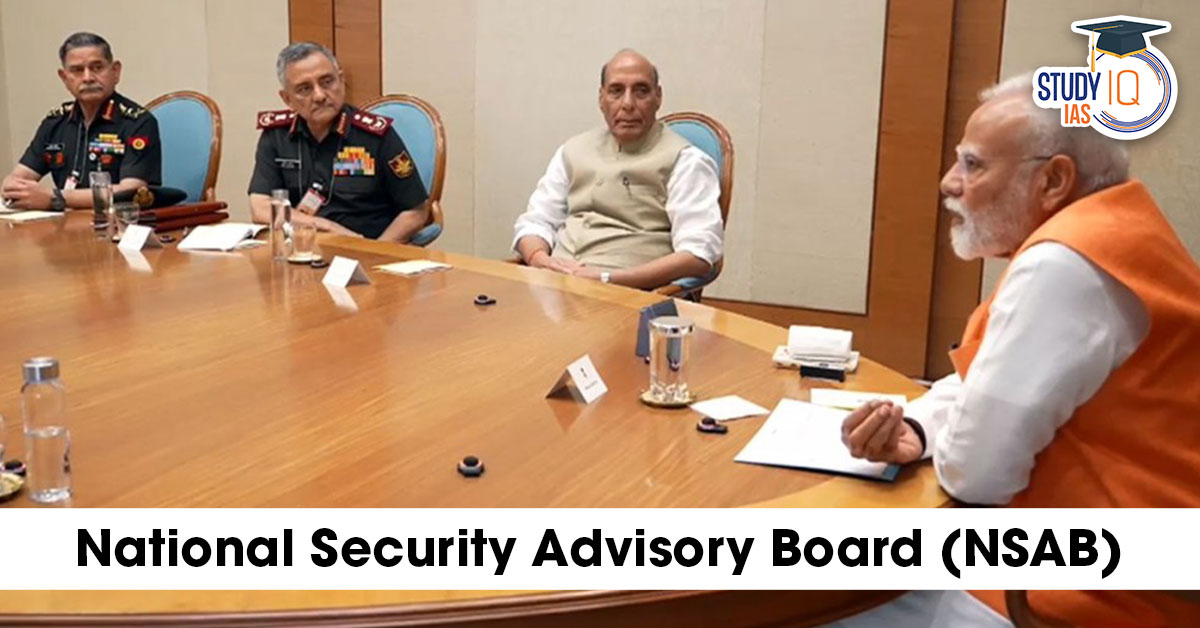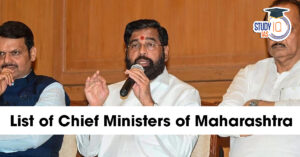Table of Contents
The National Security Advisory Board (NSAB) has been significantly revamped in the aftermath of the deadly Terror attack in Pahalgam on April 22, 2025. Alok Joshi (Ex-RAW Chief) has been appointed the chairman of the reconstituted National Security Advisory Board, comprising former military and civil service chiefs. The revamped seven-member NSAB board consists of some illustrious former armed forces and civil services officers.
New Members of National Security Advisory Board (NSAB)
The National Security Advisory Board (NSAB) has been significantly revamped. The key new members of the NSAB are:
- Chairman: Alok Joshi (Former Chief of the Research and Analysis Wing – R&AW)
- Members:
- Air Marshal P.M. Sinha (Retired Western Air Commander)
- Lt Gen A.K. Singh (Retired Southern Army Commander)
- Rear Admiral Monty Khanna
- Rajiv Ranjan Verma (Retired IPS officer)
- Manmohan Singh (Retired IPS officer)
- B. Venkatesh Varma (Retired IFS officer)
These new members, together with the Chairman, form a seven-member board made up of experienced personnel from the military, police, and foreign service. The reconstitution seeks to enhance the NSAB’s ability to give sound and strategic guidance on national security issues to the government.
Some sources report that the new board comprises a total of 15 members, implying the addition of more experts from various fields. Nevertheless, the first confirmed list mentions the seven individuals listed above.
Big Changes in National Security Advisory Board (NSAB)
Revamping as a Response to the Pahalgam Attack
The reconstitution of the NSAB is a direct fallout of the terror attack and the growing connection to Pakistan. The government plans to boost its intelligence gathering and analysis abilities to deal with such threats.
Appointment of New Chairman Hired
Alok Joshi, a retired Chief of the Research and Analysis Wing (R&AW), has been appointed as the new Chairman of the NSAB. He has rich experience in intelligence operations and is likely to have a significant influence on India’s national security strategy.
Multi-disciplinary Board
The reconstituted board has seven members, retired senior-most officers of the armed forces (Army, Air Force, Navy), the Indian Police Service (IPS), and the Indian Foreign Service (IFS). The interdisciplinary diversity is meant to offer balanced and all-around advice on national security issues.
Long-Term Analysis Focus
The NSAB’s core work is to engage in long-term analysis of issues of national security and offer strategic advice to the National Security Council (NSC) and the Prime Minister. Reconstitution highlights refocusing on collecting and analysing intelligence to avoid such terror attacks in the future.
About National Security Advisory Board (NSAB)
The National Security Advisory Board (NSAB) is a very important organisation which provides guidelines to the National Security Council (NSC) of India regarding national security-related issues. NSAB was established in December 1998, soon after the establishment of the National Security Council, by the first National Security Advisor, Brajesh Mishra.
Objectives of NSAB
- NSAB’s main role is to give long-term analyses and insights on national security issues to the NSC.
- The NSAB also advises solutions and policy alternatives on issues referred to it by the National Security Council.
- It acts as a bridge between the security machinery of the government and outside expertise.
Structure and Composition of NSAB
The NSAB is a multi-disciplinary organisation made up of prominent persons from outside the government. Members are generally senior retired officials (civilian and military), academics, and prominent members of civil society. They are selected for their proficiency in fields like:
- Internal and External Security
- Foreign Affairs
- Defence
- Science & Technology
- Economic Affairs
The NSAB board is led by a Chairperson, who typically is a retired top official or security expert. The board size varies. The recently reconstituted board in April 2025 comprises seven members, including the Chairman. But reports are indicating the presence of 15 members in total.
The term of members is typically two years, and the terms are not concurrent. It functions under the National Security Council Secretariat (NSCS). It has two subordinate bodies:
- National Information Board (NIB)
- Technology Coordination Group (TCG)
Key Functions and Responsibilities of NSAB
- Conducts independent, non-partisan analysis of national security issues.
- Provides policy insights and suggestions to the National Security Council (NSC).
- Provides strategic advice on changing threats and national interests.
- Utilises research, anticipation, and independent analysis to inform government decision-making
- Helps prepare major strategic documents, including India’s Nuclear Doctrine (2001) and Strategic Defence Review (2002), and the National Security Review (2007).
- Convenes monthly or emergency sessions to evaluate national and international threats.
- Submits autonomous reports to the National Security Advisor (NSA).
- Assists in developing inclusive security doctrines.
- Makes recommendations regarding defence, cyber, diplomatic, and internal security.
- Acts as a bridge between government machinery and academic expertise.


 List of Chief Ministers of Maharashtra F...
List of Chief Ministers of Maharashtra F...
 Electoral System in India 2026: SIR Upda...
Electoral System in India 2026: SIR Upda...
 SLAPP Suits: Meaning, Examples, Impact o...
SLAPP Suits: Meaning, Examples, Impact o...

























